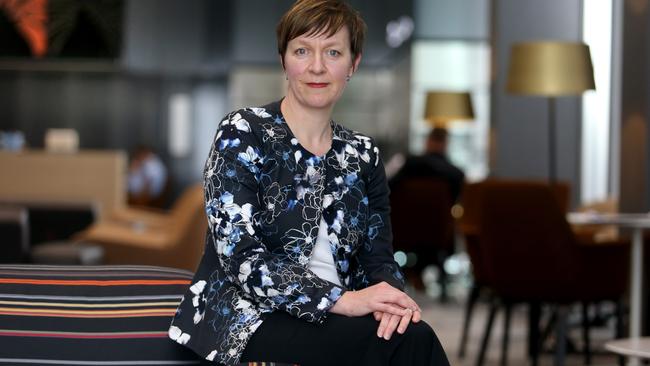BHP joins Bill Gates in carbon capture plan
Mining giant BHP has joined billionaire Bill Gates in backing a bold plan to pull carbon dioxide out of thin air.

Mining giant BHP has joined billionaire Bill Gates in backing a bold plan to pull carbon dioxide out of thin air.
The company yesterday announced it would invest $US6 million ($8.5m) in Canadian company Carbon Engineering, which already operates a so-called “direct air capture” plant near Vancouver.
The process involves stripping carbon dioxide out of air and then either sequestering the carbon dioxide underground or turning it into an industrial product.
Carbon Engineering has also developed a process to convert the carbon dioxide into a fuel that can be blended with traditional fossil fuels for use in cars, planes and other similar applications.
BHP vice-president for sustainability and climate change Fiona Wild told The Australian that the technology at the heart of Carbon Engineering had been proven, and the fresh funds from BHP would help scale up the technology and bring down its operating costs.
“We’ve had a long-term commitment to taking action to address climate change, including support for low emission technologies that do have the potential to materially reduce global greenhouse gas emissions,” Ms Wild said.
“That’s where direct air capture and this particular investment with Carbon Engineering really comes in. It’s got great flexibility, it’s got great potential for scale-up, so it makes sense for it to be part of that portfolio of investment opportunities within BHP.”
Carbon Engineering is one of a host of firms working on developing direct air capture systems.
Carbon dioxide captured through these processes can be used for a variety of industrial applications, such as the fuel developed by Carbon Engineering, the carbonation of drinks or in the shale gas industry, where it is injected to gas reservoirs to improve their pressure.
BHP formally sold off its US shale assets last year.
While BHP has become a vocal proponent for action on climate change, the company retains a significant presence in the coal industry. It has divested some of its coal businesses but still owns two coking coal mines in Queensland, the Mount Arthur thermal coal mine in NSW and a one-third stake in Colombia’s Cerrejon thermal coal mine.
BHP has also been an active investor in carbon capture and storage technology, which is held up as the coal industry’s best chance of reducing its emissions footprint.
Ms Wild said the International Panel on Climate Change’s report into the impacts of 1.5C global warming late last year was a “call to action” around both carbon capture and storage and direct air capture.


To join the conversation, please log in. Don't have an account? Register
Join the conversation, you are commenting as Logout